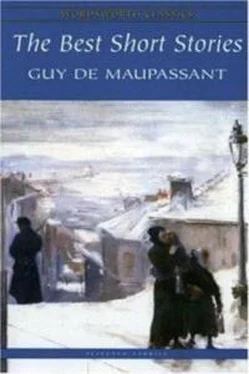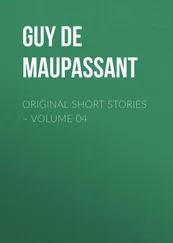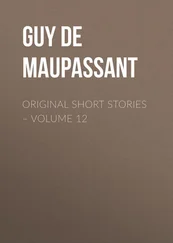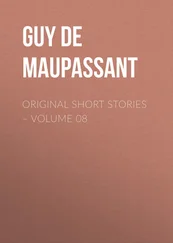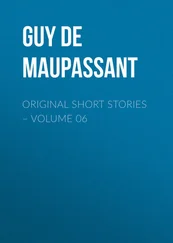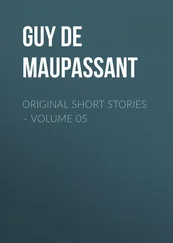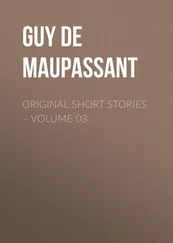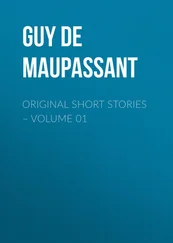"During the hours of her suffering astonishment and consternation prevented my understanding and reflecting upon it, but when she was dead I was so overwhelmed by blank despair that I had no thoughts left. I wept.
"During all the horrible details of the interment my keen and wild grief was like a madness, a kind of sensual, physical grief.
"Then when she was gone, when she was under the earth, my mind at once found itself again, and I passed through a series of moral sufferings so terrible that even the love she had vouchsafed to me was dear at that price.
"Then the fixed idea came to me: I shall not see her again.
"When one dwells on this thought for a whole day one feels as if he were going mad. Just think of it! There is a woman whom you adore, a unique woman, for in the whole universe there is not a second one like her. This woman has given herself to you and has created with you the mysterious union that is called Love. Her eye seems to you more vast than space, more charming than the world, that clear eye smiling with her tenderness. This woman loves you. When she speaks to you her voice floods you with joy.
"And suddenly she disappears! Think of it! She disappears, not only for you, but forever. She is dead. Do you understand what that means? Never, never, never, not anywhere will she exist any more. Nevermore will that eye look upon anything again; nevermore will that voice, nor any voice like it, utter a word in the same way as she uttered it.
"Nevermore will a face be born that is like hers. Never, never! The molds of statues are kept; casts are kept by which one can make objects with the same outlines and forms. But that one body and that one face will never more be born again upon the earth. And yet millions and millions of creatures will be born, and more than that, and this one woman will not reappear among all the women of the future. Is it possible? It drives one mad to think of it.
"She lived for twenty–years, not more, and she has disappeared forever, forever, forever! She thought, she smiled, she loved me. And now nothing! The flies that die in the autumn are as much as we are in this world. And now nothing! And I thought that her body, her fresh body, so warm, so sweet, so white, so lovely, would rot down there in that box under the earth. And her soul, her thought, her love—where is it?
"Not to see her again! The idea of this decomposing body, that I might yet recognize, haunted me. I wanted to look at it once more.
"I went out with a spade, a lantern and a hammer; I jumped over the cemetery wall and I found the grave, which had not yet been closed entirely; I uncovered the coffin and took up a board. An abominable odor, the stench of putrefaction, greeted my nostrils. Oh, her bed perfumed with orris!
"Yet I opened the coffin, and, holding my lighted lantern down into it I saw her. Her face was blue, swollen, frightful. A black liquid had oozed out of her mouth.
"She! That was she! Horror seized me. But I stretched out my arm to draw this monstrous face toward me. And then I was caught.
"All night I have retained the foul odor of this putrid body, the odor of my well beloved, as one retains the perfume of a woman after a love embrace.
"Do with me what you will."
A strange silence seemed to oppress the room. They seemed to be waiting for something more. The jury retired to deliberate.
When they came back a few minutes later the accused showed no fear and did not even seem to think.
The president announced with the usual formalities that his judges declared him to be not guilty.
He did not move and the room applauded.
The Grave appeared in Gil Blas, July 29, 1883, under the signature of "Maufrigneuse."
Volume XIII:
Old Judas
This entire stretch of country was amazing; it was characterized by a grandeur that was almost religious, and yet it had an air of sinister desolation.
A great, wild lake, filled with stagnant, black water, in which thousands of reeds were waving to and fro, lay in the midst of a vast circle of naked hills, where nothing grew but broom, or here and there an oak curiously twisted by the wind.
Just one house stood on the banks of that dark lake, a small, low house inhabited by Uncle Joseph, an old boatman, who lived on what he could make by his fishing. Once a week he carried the fish he caught into the surrounding villages, returning with the few provisions that he needed for his sustenance.
I went to see this old hermit, who offered to take me with him to his nets, and I accepted.
His boat was old, worm–eaten and clumsy, and the skinny old man rowed with a gentle and monotonous stroke that was soothing to the soul, already oppressed by the sadness of the land round about.
It seemed to me as if I were transported to olden times, in the midst of that ancient country, in that primitive boat, which was propelled by a man of another age.
He took up his nets and threw the fish into the bottom of the boat, as the fishermen of the Bible might have done. Then he took me down to the end of the lake, where I suddenly perceived a ruin on the other side of the bank a dilapidated hut, with an enormous red cross on the wall that looked as if it might have been traced with blood, as it gleamed in the last rays of the setting sun.
"What is that?" I asked.
"That is where Judas died," the man replied, crossing himself.
I was not surprised, being almost prepared for this strange answer.
Still I asked:
"Judas? What Judas?"
"The Wandering Jew, monsieur," he added.
I asked him to tell me this legend.
But it was better than a legend, being a true story, and quite a recent one, since Uncle Joseph had known the man.
This hut had formerly been occupied by a large woman, a kind of beggar, who lived on public charity.
Uncle Joseph did not remember from whom she had this hut. One evening an old man with a white beard, who seemed to be at least two hundred years old, and who could hardly drag himself along, asked alms of this forlorn woman, as he passed her dwelling.
"Sit down, father," she replied; "everything here belongs to all the world, since it comes from all the world."
He sat down on a stone before the door. He shared the woman's bread, her bed of leaves, and her house.
He did not leave her again, for he had come to the end of his travels.
"It was Our Lady the Virgin who permitted this, monsieur," Joseph added, "it being a woman who had opened her door to a Judas, for this old vagabond was the Wandering Jew. It was not known at first in the country, but the people suspected it very soon, because he was always walking; it had become a sort of second nature to him."
And suspicion had been aroused by still another thing. This woman, who kept that stranger with her, was thought to be a Jewess, for no one had ever seen her at church. For ten miles around no one ever called her anything else but the Jewess.
When the little country children saw her come to beg they cried out: "Mamma, mamma, here is the Jewess!"
The old man and she began to go out together into the neighboring districts, holding out their hands at all the doors, stammering supplications into the ears of all the passers. They could be seen at all hours of the day, on by–paths, in the villages, or again eating bread, sitting in the noon heat under the shadow of some solitary tree. And the country people began to call the beggar Old Judas.
One day he brought home in his sack two little live pigs, which a farmer had given him after he had cured the farmer of some sickness.
Soon he stopped begging, and devoted himself entirely to his pigs. He took them out to feed by the lake, or under isolated oaks, or in the near–by valleys. The woman, however, went about all day begging, but she always came back to him in the evening.
Читать дальше
